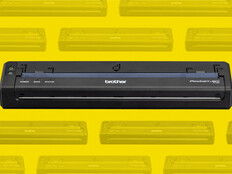Voice Activation and Virtual Assistants Modernize Health, Senior Care
By now, we’ve all seen the Saturday Night Live sketch about Amazon tailoring its Echo device to seniors. In the commercial parody, the voice-activated Alexa technology automatically reacts to the nuances of human interaction.
The truth is, though, the Echo and other voice-activated solutions are gaining traction in senior care and healthcare settings. Gartner predicts global spending on virtual personal assistant wireless speakers will surpass $3.5 billion by 2021, but analyst Ranjit Atwal thinks devices customized for senior care and healthcare will roll out in the retail sector beginning in 2020.
“The cost of hardware and services will, at least in part, be subsidized by healthcare ecosystem partners who are likely to gain substantial efficiencies and encourage patient adoption,” he says.
Meanwhile, researchers and developers continue to test the waters to fine-tune features and examine usage feasibility.
DOWNLOAD: Learn how mobile tools can save time for both providers and patients alike!
Virtual Assistants Make Residents’ Lives Easier
St. Louis-based Ascension Living, for instance, deployed dozens of Echo devices in a pair of pilot programs at its Sherbrooke Village and Lansdowne Place communities, according to Senior Housing News. Similarly, Glendale, Calif.-based Front Porch concluded an Echo pilot program this year at its Carlsbad By The Sea community.
After the latter effort, 100 percent of residents who participated in the two-phase program said Alexa made their lives easier. In phase one, Echo devices were installed in 12 units and involved 18 residents, according to Senior Housing News. In phase two, participants used Alexa to control smart thermostats from Honeywell and smart plugs to regulate other appliances.
What’s more, organizations like Waltham, Mass.-based Benchmark Senior Living and Rochester, N.Y.-based Jewish Senior Life have deployed Google Home devices to their respective residents.
“Our transitional care [short-term rehabilitation] patients enjoy using it during their stays to get instant access to information such as the weather forecast, history and current events, as well as where they need to be when,” President and CEO Mike King writes in Next Avenue. “In short, it helps them stay connected to their hobbies and interests, and on top of their schedule.”
Developers Push the Envelope on Smart Healthcare
Technology developers continue to push the envelope to create smarter products. Microsoft this year announced a project to develop an artificial intelligence-powered scribe for physicians as part of its Healthcare NExT technology development program, a collaboration with the University of Pittsburgh Medical Center.
Boston Children’s Hospital’s Innovation and Digital Health Accelerator tested the use of Alexa in a similar manner, to allow doctors and nurses to pull up information on demand to help in-patient treatment settings.
I’m intrigued by the potential of voice activation in senior care and healthcare, and I look forward to seeing how each industry evolves usage to fit consumers, caregivers and clinicians.
This article is part of HealthTech’s MonITor blog series. Please join the discussion on Twitter by using #WellnessIT.










